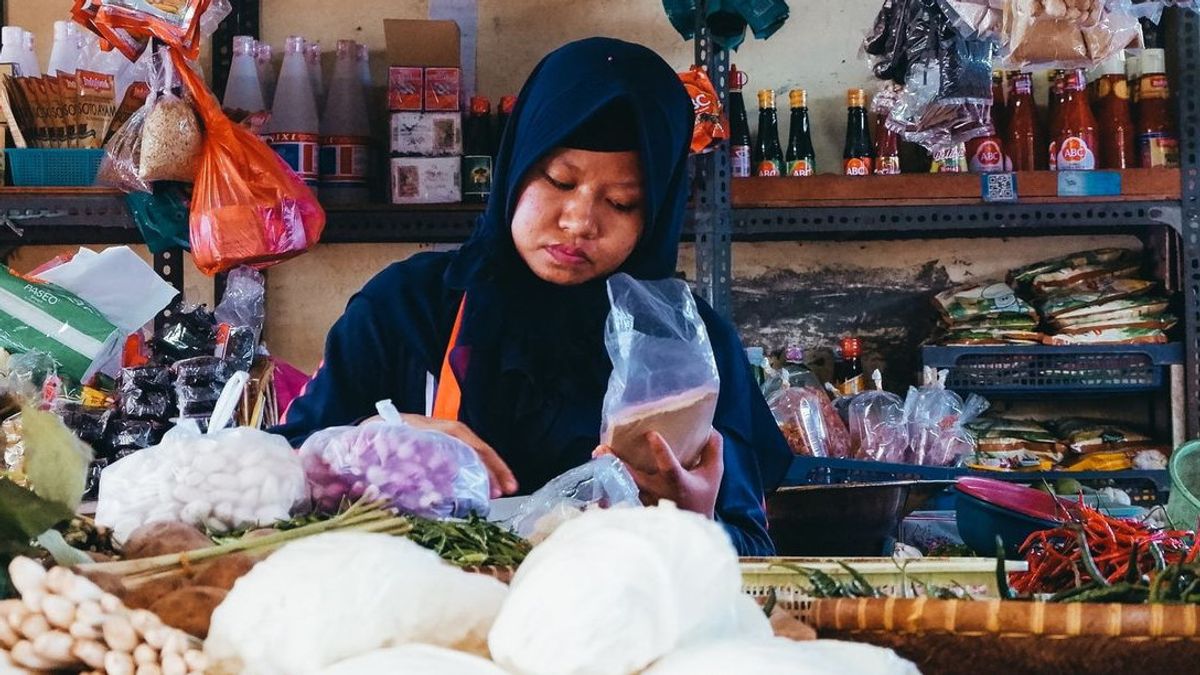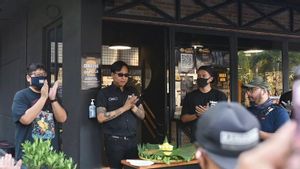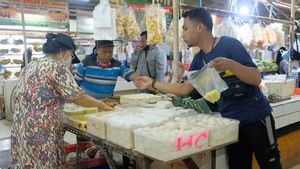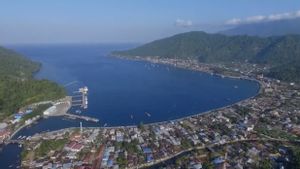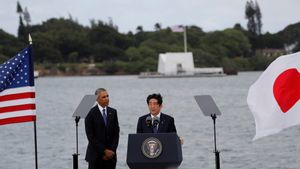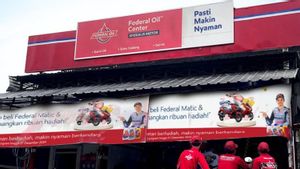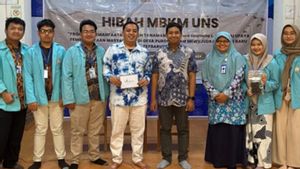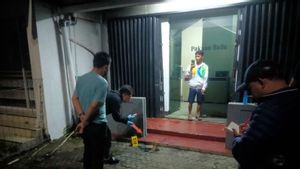JAKARTA - The government plans to impose a Value Added Tax (VAT) on the purchase of basic necessities (sembako). This plan caused controversy. Actually, what is the origin of the emergence of the word "sembako"?
The plan is contained in the revision of the draft Law (RUU) Number 6 of 1983 concerning General Provisions and Tax Procedures (KUP) which is widely circulated. In Article 4A, the government seems to remove several types of goods that are not subjected to VAT.
One thing that was removed from the provision was basic necessities. This means that basic necessities will be subjected to VAT in the amount of 12 percent. If the government's intentions are smooth, the VAT on basic necessities will come into effect next year.
And not just groceries. The government will also collect VAT rates for education or school services. This is stated in the same draft KUP, in which the government adds the type of education service to the sector that is subjected to VAT.
And the question of the 12 percent figure is stipulated in Article 7 paragraph 1. The increase in value from the original amount of 10 percent.
The origin of sembako
The beginning of the word "sembako" was when the government issued a Decree of the Minister of Industry and Trade No. 115/MPP/Kep/2/1998 dated February 27, 1998, or often abbreviated Kepmenperindag 115/1998.
In the regulation, nine basic ingredients are classified which are then abbreviated as "sembako." The nine main ingredients are:
- Rice, sago, and corn
- Granulated sugar
- Vegetables and fruits
- Beef and chicken and fish
- Cooking oil and margarine
- Milk
- Eggs
- Kerosene or LPG,
- Iodized and Sodium salt.
The classification of basic ingredients then underwent significant changes according to the needs of the community. The change is contained in the Regulation of the Minister of Trade Number 20/M-DAG/PER/3/2017 concerning the Registration of Business Actors in the Distribution of Basic Goods which came into force on April 3, 2017.
The Minister of Trade Regulation is intended to carry out the mandate of Article 12 paragraph (2) of Presidential Regulation of the Republic of Indonesia Number 71 of 2015 concerning Stipulation and Storage of Basic Needs and Important Goods. These basic necessities are goods related to the livelihood of many people on a primary need scale.
Reasons for VAT on groceries
Yustinus Prastowo, Special Staff to the Minister of Finance Sri Mulyani explained the basis for imposing VAT on basic necessities. According to Prastowo, many countries in the world are currently thinking about optimizing taxes for sustainability. One of them is VAT adjustment.
"There are 15 countries that have adjusted VAT rates to finance the handling of the pandemic. The average VAT rate for 127 countries is 15.4 percent. We are still at 10 percent," Prastowo explained in his explanation on Twitter social media.
Prastowo also explained that the government had reviewed and benchmarked with other countries regarding VAT. The results found that 24 countries set VAT rates above 20 percent, 104 countries in the range of 11-20 percent, and the rest below 10 percent.
Prastowo added that Indonesia's VAT revenue was not yet optimal. One of the reasons, according to Yustinus, is the many exceptions and facilities. In fact, he called Indonesia the country with the most exceptions.
"Intermezzo: already too kind, even many goods and services are excluded or get facilities without considering the type, price, and the group that consumes it. Be it rice, cooking oil, or health and education services, for example. Whatever the type and price, all are free!" he wrote.
Capitalism policy
A public policy expert from Trisakti University Trubus Rahadiansyah sees this policy as the practice of capitalism by the state. And the government of Joko Widodo (Jokowi) or anyone else can't do this. Indonesia is not like the United States, Germany, or Britain which adheres to a capitalist economic system.
Indonesia adheres to a mixed economic system called the Pancasila economic system. There are reasons why Indonesia implements this economic system. Internal factors, including geographical location, physical condition, quantity, and quality of natural and human resources.
In addition, there are also external factors, namely technological developments, economic conditions, world politics, and global security. From these conditions, the Pancasila economic system was chosen because it contained the meaning of economic democracy. We dissect the characteristics.
The first characteristic is that Indonesia's economic activities are joint activities based on the principle of mutual cooperation by prioritizing family relationships. Second, the production branch which is strategic and concerns the livelihood of the people must be controlled by the state.
And all control over the production of strategic goods, both in the land and water of the archipelago, is used solely for the prosperity of the people. Furthermore, the economic activities carried out must comply with the principles of sustainability and environmental insight.
In addition, to ensure the principle of justice, the government is obliged to supervise all private activities - in general - to avoid fraudulent practices, such as fraud, monopoly, and interference with the trading mafia. In simple terms, the Pancasila economic system does not approve of all forms of exploitation, let alone the people.
"Indonesia cannot exploit its people. Indonesia is not a capitalist country. We were not built that way. We were built through an agreement. So for whatever reason, we can't. So what is taxed is things that are not related to basic needs," said Trubus, contacted by VOI, Thursday, June 10.
"That's a public policy that contradicts the 45 Constitution. Our country is a country whose term is that it's a matter of life for the needs of the people. It's the responsibility of the state. Education and basic necessities cannot be taxed," Trubus emphasized his previous statement.
*Read other information about ECONOMY or read other interesting articles from Putri Ainur Islam.
Other SOLID News
SEE ALSO:
The English, Chinese, Japanese, Arabic, and French versions are automatically generated by the AI. So there may still be inaccuracies in translating, please always see Indonesian as our main language. (system supported by DigitalSiber.id)
